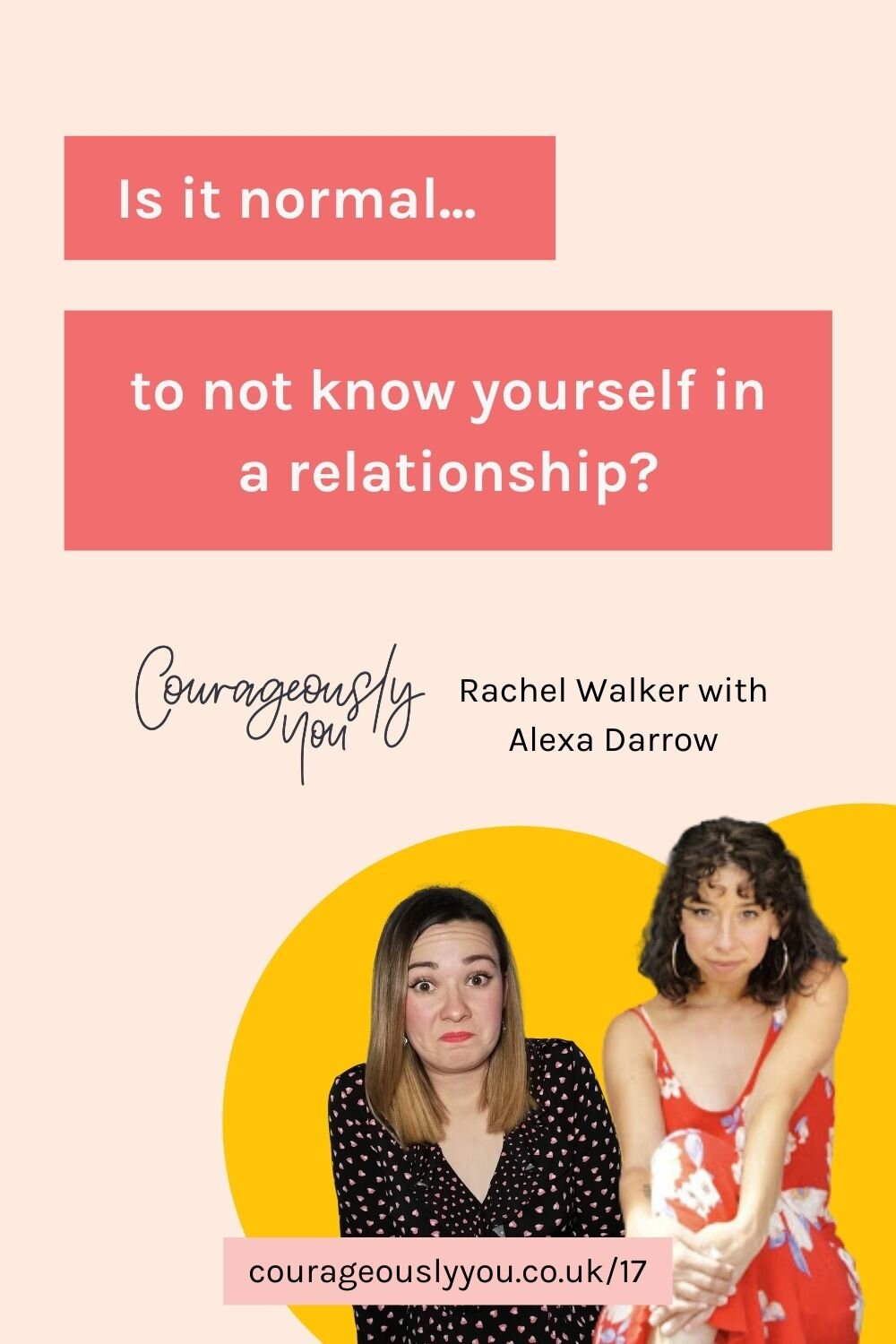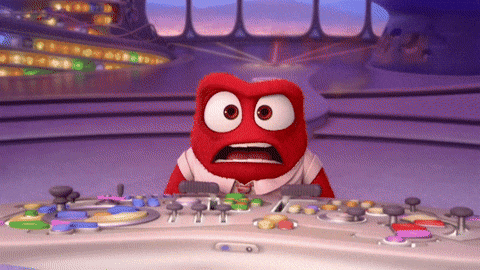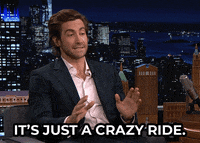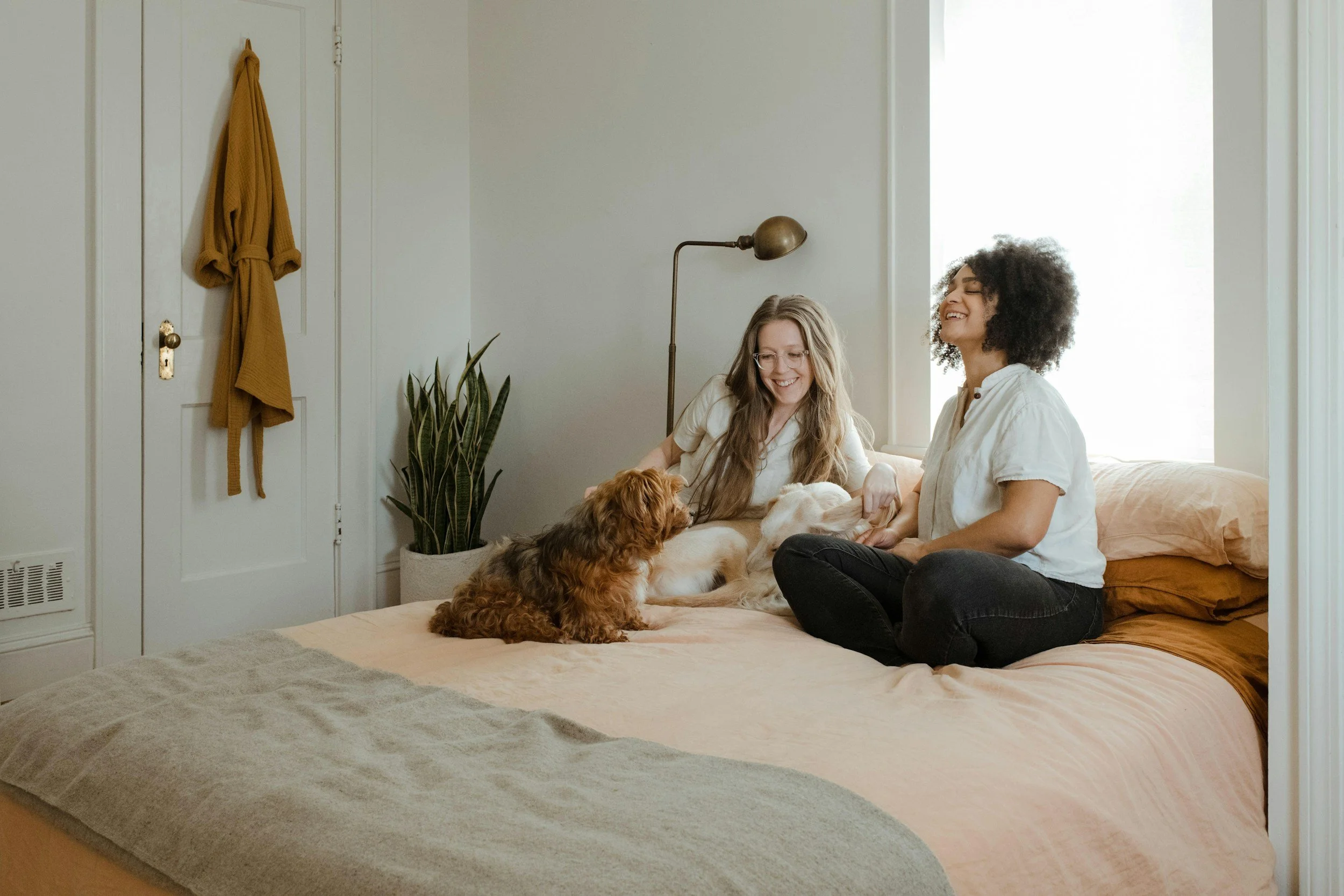Is it Normal to Not Know Yourself in a Relationship?
Do you ever feel like a different person when you’re in a relationship? Maybe like you’ve lost some of your individual spark, or that you’ve morphed into somebody different since being with your partner? If you said yes, don’t worry – you’re definitely not alone!
To explore the ins and outs of personal identity in relationships, I had a wonderful chat with life enhancement and mindset coach Alexa Darrow, who spends her time helping people find the motivation and inspiration to realise their full potential in life. Now, originally this podcast/blog combo was supposed to be all about whether it’s normal to be happy being single – but as I chatted with Alexa, it took a different turn, moving from the idea of being happy in being single to finding yourself as a person both single and in a relationship. And since Alexa and I are very much opposites (her being single for a long time, and me only really knowing myself in relationships), we thought that would be a much more interesting topic! So without further ado, let’s dive in.
What we’ll cover:
‘Finding’ yourself as a single person
External influences in your life
Collateral damage of finding yourself in a relationship
Communication is key
More from Alexa:
Instagram: @alexadarrowcoaching
Prefer to listen? Head to the podcast here.
Finding Yourself as a Single Person
There is absolutely nothing wrong with being single – after all everyone is at some time or another! And it’s one of the best stages to really learn about yourself and do some self-discovery, completely strings-free. But there is also a lot of stigma attached to this phase of life, so many people skip right through it. And with our media, rom coms and TV shows so focussed on couples, it’s all too easy to think that in order to be ‘whole’, you have to be with somebody else. So when someone is breaking that conventional mould of getting married, having kids and serving all of these other people’s needs, it can be all too easy to label them as ‘selfish’. This was definitely true for Alexa, who has been dating, but not in a long-term relationship, for a big chunk of her adult life.
‘I think a lot of people look at my life choices as selfish. But I’m not a selfish person, and I’m highly empathetic. I take everyone else’s feelings into consideration all the time, to the point that I’d say I’m a real people pleaser, and I don’t like disappointing anyone. But I don’t have a partner, kids or pets, so some people assume I’m quite selfish. But really, I’ve been able to spend this time figuring out who I am, being by myself but dating a lot – it’s allowed me to figure out what I want and don’t want, what I like and what I deserve. I’ve really been able to live my life based on my passions and what fills my cup. It’s not that I want to be single forever, I just don’t want to settle, and I want someone to do life with that understands, and matches who I am. I believe a partnership should be two whole people coming together, rather than two halves making a whole, so I’ve been focussing on making myself a whole, fulfilled person.’
But what selfish about being self-aware, conscious and making your own decisions? If it’s not negatively impacting anyone else, then it shouldn’t be stigmatised at all. In fact, sometimes being on your own is the best time to get to know yourself, understand your own mind and body, and become comfortable and confident in yourself. Being single is an amazing tool for self-discovery. But what happens when you get into a relationship, and that starts to change?
The External Influences of Your Life
Have you ever heard the expression ‘you are the average of the 5 people you spend the most time with’? It’s something no one likes to really admit, but it’s so true, and I think it’s one of the reasons so many people struggle with individual identity when they’re in a relationship – especially a long-term one. You spend a lot of time with your partner, and so they have a big influence on who you are. You might find yourself liking things you didn’t before, taking up new hobbies, or even talking differently. It’s so easy to bring your partner into your own personality, and kind of lose sight of yourself in the process. Even talking to friends and family to try and get perspective on things can influence your thoughts and feelings, and make it even more difficult to find yourself within all of the external noise. Because at the end of the day, only you know yourself, what will make you happy, and only you can make those decisions. And one of the only ways you can really get past that is to put some boundaries in place against all of those outside voices, dedicate some time to getting to know yourself again, and knowing what will really make you happy. So go ahead – be selfish! Sometimes it’s exactly what you need.
The Collateral Damage
One of the things I touched on when I shared my story with Alexa was that, even though I know myself and am secure in myself now, I feel like that came at the expense of other people’s feelings. I’ve been in relationships pretty much consistently for the last 15 years, so going through the process of getting to know myself and be happy with myself has always involved someone else along the way. During my coaching work I’ve met a lot of women who feel lost in their relationships and worry about the collateral damage it’s going to cause if they find themselves. And to show you just how common that feeling is, I’m going to share a story of my own with you.
I had a relationship that lasted around five or six years with a man, let’s call him D. And towards the end of that time. I met somebody else, let’s call him P. P and I became friends, but that friendship planted the seeds of doubt in my relationship. I kept telling myself that this was just a friendship, it’s normal, you meet other people, it’s normal. But there were a lot of signs from my body and my gut that it wasn’t normal. I’m pretty prone to hard denial, so I kept telling myself to just forget about it. Forget about it. And then one day, I couldn’t forget about it any more. At that point I had a huge identity crisis, because I thought I knew who I was – a loyal, loving person that cared about my partner. The man who did nothing wrong and has never wronged me. The man I had just bought a house with, and started building a life with. And I had to ask myself, ‘what the fuck is wrong with me?’. I went to therapy to try and work it all out, and that made me realise a few things.
First, whether you like it or not, when you meet somebody, it becomes all about them, but also not about them. You kind of feel like this person represents pieces of yourself that you’ve had to put inside a little box in the past. For me, it wasn’t that D told me I couldn’t do things – it was completely beyond his awareness. It was me not being self-aware, not communicating, and instead changing myself to fit the relationship without really realising. So that nearly 6 years down the line, I suddenly felt like there wasn’t a lot of myself there. For example, I am a very playful person, it’s a big part of my personality. But with D, I didn’t think that was the person I should be for him, so I just boxed it away – without even asking him! And I was suddenly afraid of bringing those parts out of the boxes again. There was a fear there. And then I realised that I had never really existed in my adult life in a space where I’d not had to consider somebody else’s needs. It’s only in meeting P, going to therapy and really learning about myself and how to communicate, that I’ve been able to be myself – it’s a big journey of self-discovery that has been very worth it.
Communication is Key
I know I say this a lot, but honestly I think the key to a good, strong relationship is communication. Being open about what you’re thinking and feeling, what you want and like, and being open to discussions about those things. Even just having those conversations can help you discover more about yourself, and help you feel more fulfilled and whole as a person.
But that also includes communication about yourself, and to yourself. What you’re thinking and feeling, the things you enjoy, and all parts of you as a person. And communicating with your own emotions, thoughts and gut feelings when it comes to making decisions for you. Because life everything in life, decisions get easier with practice! The story I told earlier was the hardest decision I’ve ever had to make, but now I understand more about myself, I know what my gut feelings mean and what my blind spots are – so I’m a much better decision maker now. It’s something I say to a lot of my coaching clients – practice listening to yourself, communicating with yourself and making decisions that are right for you!
For both myself and Alexa, the core was understanding that there is a difference between ‘settling’ in a relationship where you feel lost, and feeling settled in a relationship. When you feel settled in a relationship, it creates this sense of you as a whole person, working in partnership with another whole person. And sometimes that takes time to develop! Creating a sense of you is tough, but with the right person, it can be done in a relationship , as well as when you’re single. But sometimes that feeling of being lost, and not really knowing who you are persists, and that’s when you need to start asking yourself the tough questions, trusting your gut, and making decisions that are right for you, and will help you understand yourself more and become a fulfilled person.
Alexa’s final piece of advice is that no matter who you are or aren’t with, you still need to feel and live your own life. You still need your own passions, hobbies, friends and desires – because if you don’t, you’re not really being your authentic self. Sure, you can still be excited about other peoples desires and get involved, but it’s important not to lose yourself in the process. And while I know just how easy it is to get swept up in someone else when you’re in a relationship, it’s important to keep doing you, even while you’re doing other people as well!
If you liked this topic, you can listen to the full podcast episode here, and you can find out more about Alexa and what she does here. Until next time, you do you!













I help late diagnosed ADHD folk make career and life decisions they trust. ICF Certified Coach, Youtuber & Writer.